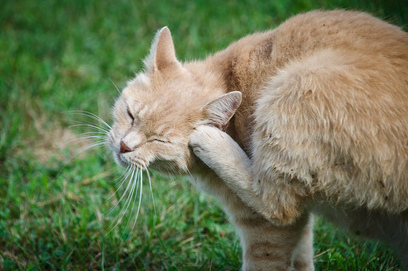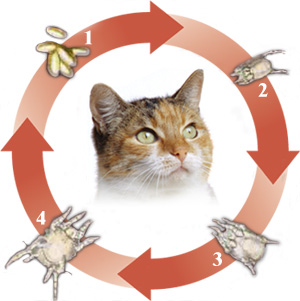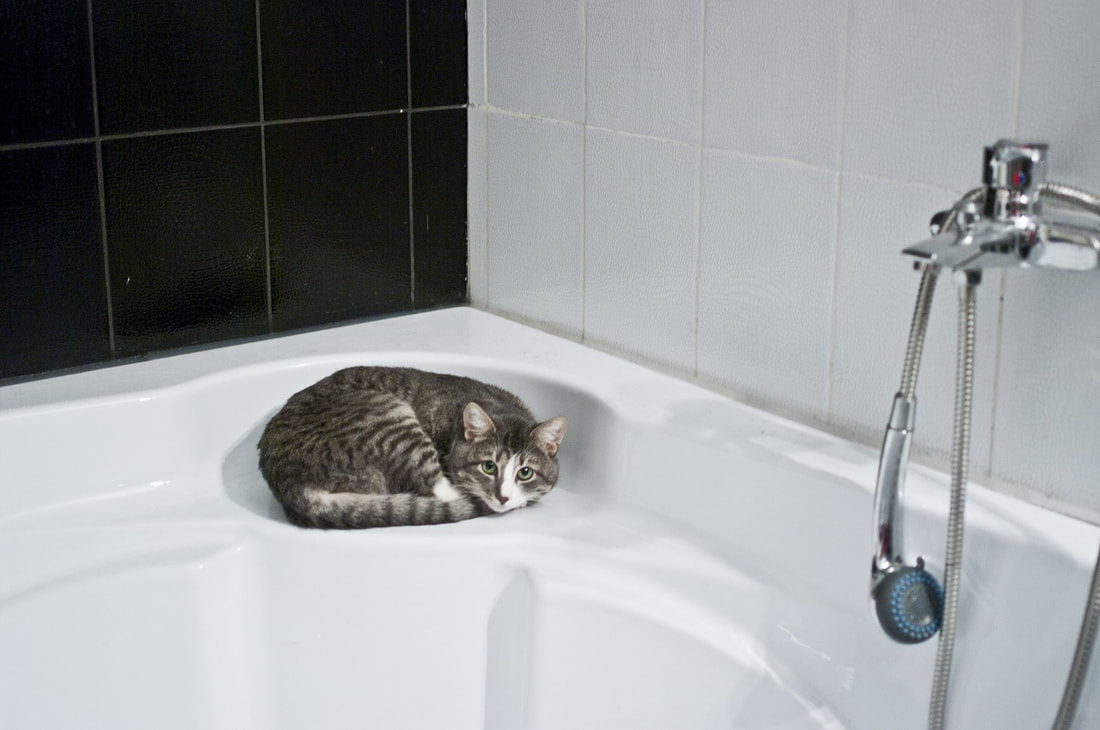- Eggs are layed and hatched in approximately 4 days
- Larvae Feed for 5 days before moulting
- Nymph Feeds for 8 days and molts to adult
- Adult mite lives in cats ear canal and feeds on wax and oils.
Animals are living creatures and just like humans, once we have a foreign body in you, you will exhibit certain signs of discomfort and many times physical health issues. Cats which are infected with ear mites will exhibit:
Scratching of the ear and rubbing the ear excessively.
- This is just the cats way of trying to sooth an itch so that he can find a bit of comfort, after all who doesn't feel a itch or bite and doesn't scratch or rub?
Ear Inflammation
- The cats ear may become inflamed because of the rigid and excessive ear scratching and rubbing. If left untreated, the cat may damage his own ear by scratching and cutting it and then increases the chance of a serious infection.
Dermatitis and hair loss
- This is simply inflammation of the skin, once the skin becomes inflamed, you can be sure that it may cause hair follicle damage which will result in hair loss.
Consistent Head Shaking
- You will notice your cat suddenly has a consistent head shaking as though his fur is wet and he/she is shaking off the excess water. This is due to the fact that the ear mites causes a very irritable feeling and the cat may even scratch the ear so bad that it becomes terribly sore and the only other form of relief is shaking the head.
Obstruction of The Ear Canal With Dark Debris
- Ever wonder where the ear mites put their secretions, well part of those debris you will see in the cat ear is ear mite poop mix with dirt.
Stinky Ear
- The cat will have a bad odor stemming from ear infection caused by the ear mites and the fact that they have been living in and pooping in the cats ear, a very sensitive area.
What Complications Are There If My Cat Has Ear Mites
Treating Cat Ear Mites
The good thing about ear mites is that they can easily be treated and if you suspect that your cat is infested. You can simply visit your vet and he will examine the cats ear and tell you whether your suspicion is correct. If the diagnosis comes up positive, the vet will simple prescribe the appropriate medication needed to get rid of ear mites as well as heal any inflammations.
Prevention is Always better than cure
Always keep your cat ears clean, this can be done using cotton swaps with fresh clean water and a bit of pet shampoo. Ensure that all animals your pet is associated with are free from ear mites. Keep a clean and healthy outdoor environment. Keep bushes trimmed and avoid your cat playing in direct dirt.





 RSS Feed
RSS Feed

